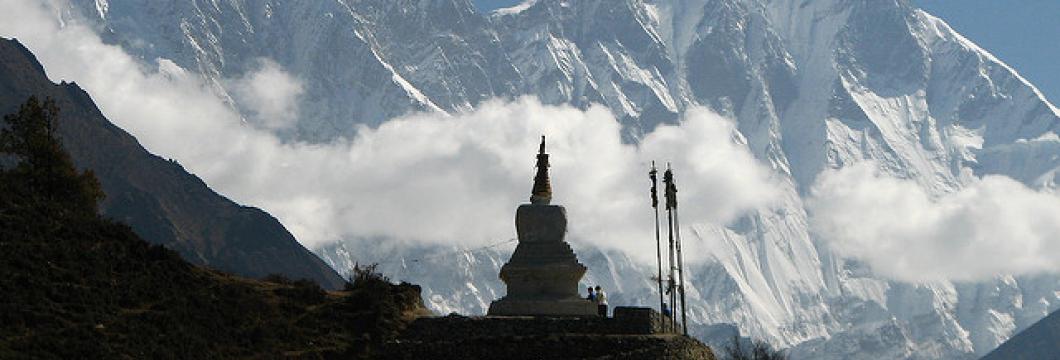Disaster events and environmental shocks disproportionately affect rural and poor populations. The Nepali Himalayas are a particularly vulnerable hotspot, as earthquakes are common and more than 80% of the rural population is dependent on agriculture and home-produced food.
Drawing upon field research conducted in Nepal, this Matrix research team is working with local communities and non-governmental groups to identify actions that can be taken to create a more sustainable future for people and the land. Focusing on factors like agricultural production, home-gardening, crop and livestock diversity, ecosystem service delivery, and food storage and provision, their work is focused on assessing and improving agro-ecological resilience, the ability of rural farming communities (and ecosystems) to spring back from and/or adapt to the outcomes of natural disasters.
"Evidence suggests that diversified agroecosystems and agricultural practices are more resilient to economic and climate variability and change, compared to monocrop systems that rely heavily on external inputs and market demand," they explained in their proposal. "Diversified farming systems may protect natural resources, maintain or even increase agrobiodiversity, and strengthen farmer resilience to climate variability, natural disasters, or economic crises."
Using a mixed-methods and participatory approach, this team—led by Dr. Isha Ray, Associate Professor at the Energy and Resources Group and Co-Director of the Berkeley Water Center—is conducting extensive fieldwork near the epicenters of the 2015 earthquakes in Nepal to increase understanding of how diverse and changing farming systems and livelihoods interact with post-shock community resilience. In addition to more traditional methods of data collection, they are establishing a series of knowledge-sharing platforms where communities are active participants in their own research and share data—including strategies for increased resilience—with neighbors.
Their research is guided by two interconnected core questions: 1) How do agricultural and food system practices contribute to enhanced adaptive capacity to withstand and recover from disasters in rural communities? and 2) How do households and communities develop and adapt resilience practices to withstand and recover from environmental shocks in rural communities?
With the support of Matrix, they will 1) investigate how (and if) agricultural and farm system diversification has contributed to livelihood strategies and food security practices, 2) identify key strategies that rural communities have adapted for coping with interconnected and on-going variability (climate, demographic, economic) and sudden shocks (earthquakes, landslides), and 3) facilitate intra- and inter-community knowledge-sharing through a series of participatory resilience assessment workshops, story generation, publications and meetings.
"This work seeks to question traditional forms of data collection and instead utilize transdisciplinary and participatory approaches, which will be critical to assess disaster relief and resilience from a systems perspective," they explained. "Findings will contribute to national and regional resource management policies and provide opportunities for knowledge sharing across diverse communities impacted by sudden shocks and ongoing variability."
Image: McKay Savage: Nepal Sagamartha Trek, "Chorten Silhouetted by Lhotse & Everest" Creative Commons via Flickr




